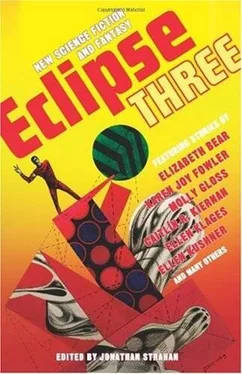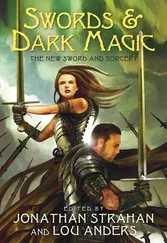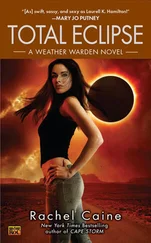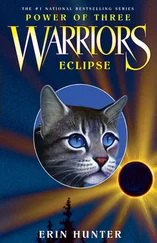But they eluded her, the lions and the zoo alike. Not that she was lost, no, not for a minute. She walked along enjoying herself, smiling in the sunlight, and petting all the dogs that came bouncing up to her. If their owners asked where her parents were, she pointed firmly in the direction she was going and said, "right up there," then moved on, laughing, before they had time to think about it. At every branching of the path she would stop and listen, taking whatever turn sounded like it led toward the lions. She didn't seem to be getting any closer, though, which eventually grew frustrating. It was still an adventure, still more exciting than the birthday picnic, but now it was beginning to annoy her as well.
Then she came around a bend in the path, and saw a man sitting by himself on a little bench. To her eyes he was a very old man, almost as old as her great-uncle Wilhelm-you could tell that by his white hair, and the deep lines around his closed eyes, and the long red blanket that his legs stretched out in front of him. She had seen other old men sitting like that. His hands were shoved deep into his coat pockets, and his face lifted to the angle of the afternoon sun.
She thought he was asleep, so she started on past him, walking quietly, so as not to wake him. But without opening his eyes or changing his position, he said in a soft, deep voice, "An exceptional afternoon to you, young miss."
Exceptional was a new word to her, and she loved new words. She turned around and replied, trying to sound as grown up as she could, "I'm very exceptional, thank you."
"And glad I am to hear it," the old man said. "Where are you off to, if I may ask?"
"I'm going to see the lions," she told him. "And the draffs. Draffs are excellent animals."
"So they are," the old man agreed. His eyes, when he opened them, were the bluest she had ever seen, so young and bright that they made the rest of him look even older. He said, "I used to ride a draff, you know, in Africa. Whenever I went shopping."
She stared at him. "You can't ride a draff. There's no place to sit."
"I rode way up on the neck, on a little sort of platform." The old man hadn't beckoned to her, or shifted to make room for her on the bench, but she found herself moving closer all the same. He said, "It was like being in the crow's-nest on the mast of a ship, where the lookout sits. The draff would be swaying and flowing under me like the sea, and the sky would be swaying too, and I'd hang onto the draff's neck with one hand, and wave to all the people down below with the other. It was really quite nice."
He sighed, and smiled and shook his head. "But I had to give it up, because there's no place to put your groceries on a draff. All your bags and boxes just slide right down the neck, and then the draff steps on them. Draffs have very big feet, you know."
By that time she was standing right in front of him, staring into his lined old face. He had a big, proud nose, and his eyebrows over it were all tangly. To her they looked mad at each other. He said, "After that, I did all my shopping on a rhinoceros. One thing about a rhinoceros"-and for the first time he smiled at her-"when you come into a store, people are always remarkably nice. And you can sling all your packages around the rhino's horn and carry them home that way. Much handier than a draff, let me tell you."
He reached up while he was talking and took an egg out of her right ear. She didn't feel it happen-just the quick brush of his long fingers, and there was the egg in his hand. She grabbed for her other ear, to see if there might be an egg in there too, but he was already taking a quarter out of that one. He seemed just as surprised as she was, saying, "My goodness, now you'll be able to buy some toast to have with your egg. Extraordinary ears you have-my word, yes." And all the time he was carrying on about the egg, he was finding all kinds of other things in her ears: seashells and more coins, a couple of marbles (which upset him-"You should never put marbles in your ears, young lady!"), a tangerine, and even a flower, although it looked pretty mooshed-up, which he said was from being in her ear all that time.
She sat down beside him without knowing she was sitting down. "How do you do that?" she asked him. "Can I do that? Show me!"
"With ears like those, everything is possible," the old man answered. "Try it for yourself," and he guided her hand to a beautiful cowrie shell tucked just behind her left ear. Then he said, "I wonder… I just wonder… " And he ruffled her hair quickly and showed her a palm full of tiny silver stars. Not like the shining foil ones her preschool teacher gave out for good behavior, but glittering, sharp-pointed metal stars, as bright as anything in the sky.
"It seems your hair is talented, too. That's exceptional."
"More, please!" she begged him.
The old man looked at her curiously. He was still smiling, but his eyes seemed sad now, which confused her.
"I haven't given you anything that wasn't already yours," he said. "Much as I would otherwise. But this is a gift. From me to you. Here." He waved one hand over his open palm, and when it passed she saw a small silver figure of a horse.
She looked at it. It was more beautiful, she thought, than anything she had ever seen.
"I can keep it? Really?"
"Oh yes," he said. "I hope you will keep it always."
He put the exquisite figure in her cupped hands, and closed her fingers gently over it. She felt the curlicues of the mane, blowing in a frozen wind, against her fingertips.
"Put it in your pocket, for safekeeping, and look at it tonight before you go to bed." As she did what he told her, he said, "Now I must ask where your parents are."
She said nothing, suddenly aware how much time had passed since she had left the picnic.
"They will be looking everywhere for you," the old man said. "In fact, I think I can hear them calling you now." He cupped his hands to his mouth and called in a silly, quavering voice, "Elfrieda! Elfrieda! Where are you, Elfrieda?"
This made her giggle so much that it took her a while to tell him, "That's not my name." He laughed too, but he went on calling, "Elfrieda! Elfrieda!" until the silly voice became so sad and worried that she stood up and said, "Maybe I ought to go back and tell them I'm all right." The air was starting to grow a little chilly, and she was starting to be not quite sure that she knew the way back.
"Oh, I wouldn't do that," the old man advised her. "If I were you, I'd stay right here, and when they come along you could say to them, 'Why don't you sit down and rest your weary bones?' That's what I'd do."
The idea of saying something like that to grownups set her off giggling again, and she could hardly wait for her family to come find her. She sat down by the old man and talked with him, in the ordinary way, about school and friends and uncles, and all the ways her cousin Matthew made her mad, and about going shopping on rhinoceroses. He told her that it was always hard to find parking space for a rhino, and that they really didn't like shopping, but they would do it if they liked you. So after that they talked about how you get a rhinoceros to like you, until her father came for her on the motorcycle.
"I lost it back in college." She caressed the little object, holding it against her cheek. "I looked and looked, but I couldn't find it anywhere." She looked at him with a mix of wonder and suspicion. She fell silent then, frowning, touching her mouth. "Central Park… there was a zoo in Central Park."
The magician nodded. "There still is."
"Lions. Did they have lions?" She gave him no time to answer the question. "I do remember the lions. I heard them roaring." She spoke slowly, seeming to be addressing the silver horse more than him. "I wanted to see the lions."
Читать дальше











